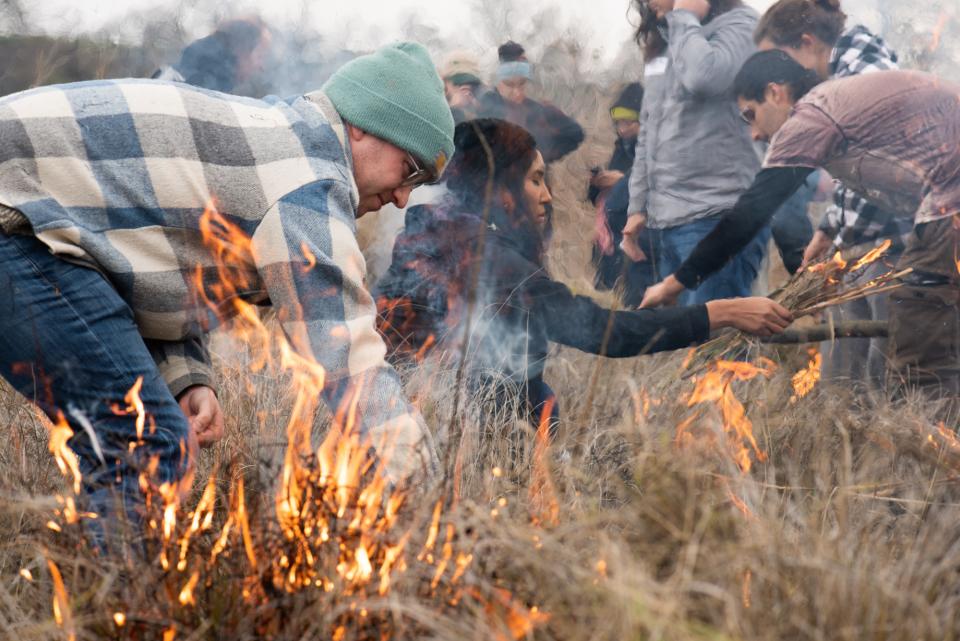
UC Davis students, academics and members of the local Native American community take part in a collaborative cultural burn at the Tending and Gathering Garden at the Cache Creek Nature Preserve in Woodland. (Alysha Beck/UC Davis)
October 2, 2020 - By Kat Kerlin - As wildfires burn bigger, hotter and more frequently each year, state and local agencies, groups and landowners are increasingly looking to Native people — the original land managers — for guidance on living with fire.
A new multimedia feature, “Rethinking Fire: Cultural Burning and the Art of Not Fighting Fire,” takes readers along with UC Davis students, regional tribes, state agencies and community groups on cultural burns in Woodland and Mariposa in California.
The story and video, published on the UC Davis Science & Climate website, feature students and faculty from the UC Davis Native American studies class “Keepers of the Flame,” along with regional tribal and community members.
Cultural burns, practiced by Indigenous people for millennia, is fire lighting, not firefighting. It views fire as restorative, not destructive — which can be a mental adjustment for non-Native people. Cultural burns help restore native plants important to Indigenous basketry, food and medicine, and also hold lessons for fire management in California.
Among the story’s voices:
- Beth Rose Middleton Manning, UC Davis professor of Native American studies
- Christopher Adlam, UC Davis Graduate Group in Ecology student and instructor
- Ron Goode, North Fork Mono tribal chair
- Julie Dick Tex, basket weaver — Yosemite Miwok, Mono Lake Paiute, Kashaya Pomo and Coast Miwok
- Jennifer Montgomery, California Governor Forest Management Task Force director
- Diamond Lomeli, UC Davis student, Yocha Dehe Wintun Nation Tribal Council member at large
Source: UC Davis








